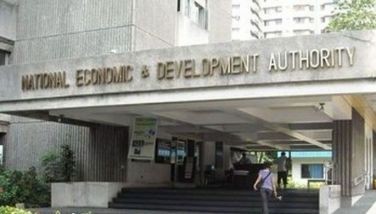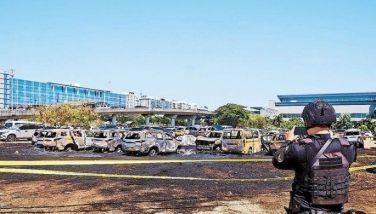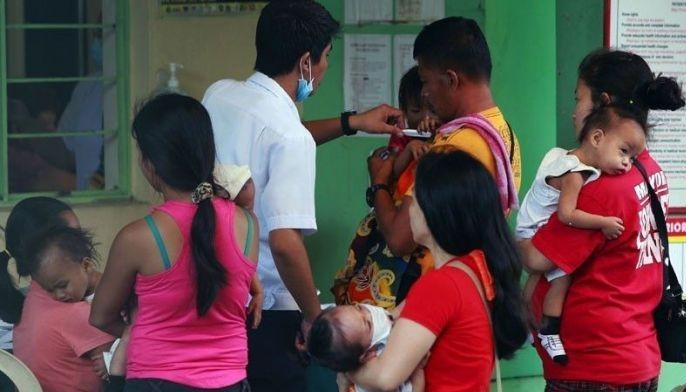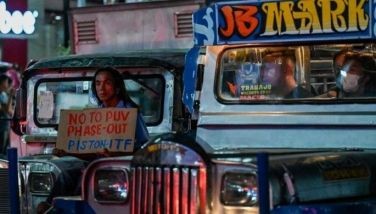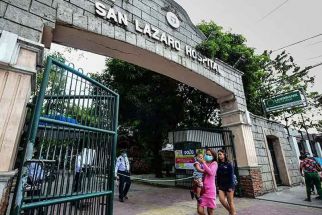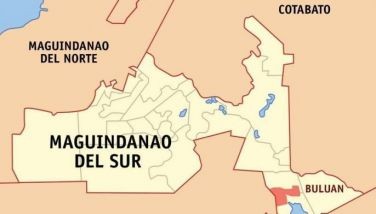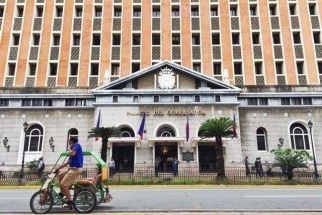Freedom of speech strong – SWS
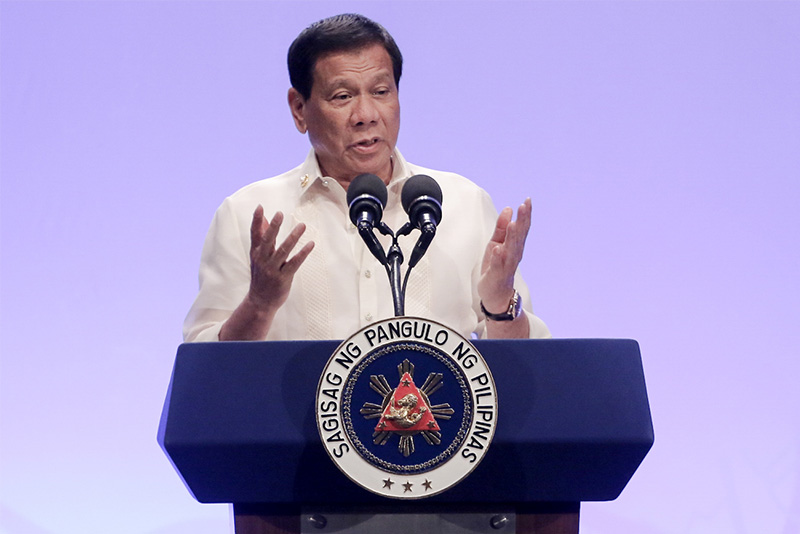
The March 25-28 survey, the results of which were released on Friday, showed that 55 percent of the 1,200 adult respondents agreed that they can say anything they want openly and without fear even if it is against the government. Philstar.com/Efigenio Toledo IV, File
MANILA, Philippines - Freedom of speech in the country remains strong despite reports of online harassment against vocal critics of President Duterte and his administration, a survey conducted by Social Weather Stations (SWS) shows.
The March 25-28 survey, the results of which were released on Friday, showed that 55 percent of the 1,200 adult respondents agreed that they can say anything they want openly and without fear even if it is against the government.
Twenty-one percent disagreed with the statement, while the remaining 24 percent were undecided.
The survey resulted in a “strong” +34 net freedom of speech rating, two points higher than the “strong” +32 (54 percent agree, 22 percent disagree) obtained in September 2016.
The net freedom of speech rating is obtained by deducting the percentage of those who disagreed with the statement from those who agreed with it.
SWS classifies net scores of +50 and above as very strong; +30 to +49, strong; +10 to +29, moderate, +9 to -9, neutral; -10 to -29, poor; -30 to -49, weak; and -50 and below, very weak.
Based on the recent survey, freedom of speech is deemed strong in all areas, obtaining +37 in the Visayas, +34 in Mindanao and Balance Luzon and +30 in Metro Manila.
In terms of socio-economic strata, freedom of speech is strongest among those Class ABC and D, which both obtained +37 net rating.
However, figures fell significantly among those who identified themselves as members of Class E, dropping from +38 in September 2016 to +16 in March.
By gender, the survey showed that male respondents obtained a net +37 freedom of speech rating, while females obtained +30.
The survey had a +/- three percent error margin for national percentages.
The freedom of speech rating under the Duterte administration is not too far from the average rating obtained by previous post-Marcos presidencies: +33 for Corazon Aquino, +38 for Fidel Ramos, +41 for Joseph Estrada, +34 for Gloria Macapagal-Arroyo and +32 for Benigno Aquino III.
The survey firm first conducted a freedom of speech survey in July 1985 during the time of dictator Ferdinand Marcos, obtaining the record low net freedom of speech rating of +3 (33 percent agree, 29 percent disagree).
The record high +63 (74 percent agree, 11 percent disagree) was obtained in March 1987 during the first Aquino presidency.
‘Monitor fake news’
Senate Majority Leader Vicente Sotto III claimed that some foreign media outlets are spreading fake news about the Philippines, and urged the Presidential Communications Operations Office (PCOO) to look into it and let them know the government’s objection to it.
Sotto, who is in Brisbane, Australia to watch the fight of Senator Manny Pacquiao against Australian Jeff Horn today, said that he was watching television and caught a report about martial law in the Philippines.
The report, which he watched at past five in the afternoon on the Australian Broadcasting Corporation, allegedly claimed that President Duterte declared martial law to jail members of the political opposition.
Sotto said the report was so out of tune that it even cited the case of Senator Leila de Lima, who was arrested and detained earlier this year because of her alleged involvement in illegal drugs.
He immediately went to Twitter to air his comments about the report.
“Just saw ABC Aussie report about PH. Completely false! Sez martial law declared to imprison critics. PCOO should object strongly. Salbahe!” Sotto said in his tweet.
In a radio interview yesterday, Sotto was asked about the forthcoming fight of Pacquiao, but could not help but bring out the alleged fake news report on ABC.
“The Presidential Communications Office should call their attention,” Sotto said in an interview over dwIZ radio.
“No wonder the image of the Philippines is so bad internationally because of such poor reporting,” he added.
The Duterte administration has been criticized internationally because of its alleged human rights abuses in the conduct of its war against drugs.
Human Rights Watch, an international human rights watchdog, has repeatedly called the attention of the world to the abuses allegedly being committed by the Duterte administration.
The organization characterized the first year of the Duterte presidency as a human rights calamity because of its “murderous war on drugs,” drug-related overcrowding of jails and the harassment and prosecution of drug war critics.
CHR counters trolls
Meanwhile, the Commission on Human Rights (CHR) has countered trolls with an information campaign regarding the delineation of their duties with that of the Philippine National Police (PNP) and other government agencies.
Amid accusations from trolls that the CHR only protects suspects and is quiet when other forms of crimes are committed, the commission reiterated that addressing criminality is primarily the role of the PNP.
“If the crime is committed by a civilian or a private individual such as killings, rape and the like, the PNP is the one that is mandated to act on it,” said the agency in Filipino.
Under the Constitution, the CHR is mandated to investigate all forms of human rights violations involving civil and political rights in the country. It is also tasked to monitor the government’s compliance with international treaty obligations on human rights.
“It is the responsibility of the CHR to protect the rights of the people from abuse by state agents such as the government, police and the military. The CHR is mandated to ensure that the government will not abuse and violate its duty to protect the primary rights of the people,” it added.
The CHR also said every government agency has an obligation to protect the rights of the people, such as the PNP on the right to life and property, the Department of Health on the right to health and the Department of Education on the right to education.
“But if it is the state that violated the human rights, it is the responsibility of the CHR to act as the conscience of the government,” it said. – With MarvinSy
- Latest
- Trending















